Let’s not send our biodiversity to the museum
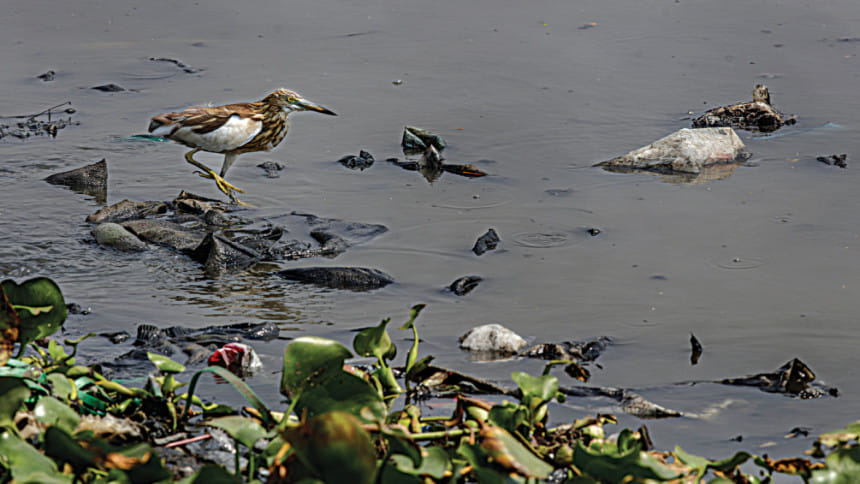
There was a time when a walk through any rural stretch of Bangladesh meant brushing shoulders with the wild—migratory birds nesting overhead, medicinal herbs underfoot, butterflies flitting across mustard fields, and frogs croaking beside streams. Today, we have to squint to catch glimpses of what once surrounded us in abundance.
Our cities swell, concrete creeps across forests and wetlands, and the silence of disappearing species grows louder than ever. Meanwhile, our rivers, blackened by industrial and urban pollution, have turned into graveyards for aquatic life. Bangladesh has been a party to the Convention on Biological Diversity (CBD) since 1994, pledging to halt this erosion. Yet, here we are, three decades later, with species vanishing, ecosystems collapsing, and policies reading better on paper than they perform in practice.
According to Bangladesh's Fourth National Report to the CBD in 2010, over 50 species of plants and 100 species of animals were classified as threatened. The IUCN's 2015 Red List for Bangladesh identified 390 threatened species, including 56 mammals, 63 reptiles, and 41 amphibians. This is not just an ecological tragedy; it's a national emergency. When species disappear, they take with them centuries of balance, resilience, and interdependence. And once they're gone, they don't come back.
One would expect this crisis to spark political urgency and societal outrage. But our efforts to conserve biodiversity remain lukewarm at best. Yes, some steps have been taken, including the enactment of the Biodiversity Act, 2017 and the development of the National Biodiversity Strategy and Action Plan. However, these frameworks are often undermined by weak implementation, overlapping mandates, and a stark absence of public accountability.
We must now rewrite the story we tell ourselves about development. Concrete is not the only measure of progress, and GDP means nothing if our children grow up never hearing the call of the kokil (Asian koel) or seeing a freshwater turtle. Economic growth cannot come at the cost of ecological suicide.
Take the CBD's requirement for measurable biodiversity targets: Bangladesh's 2020 goals included halting habitat loss and reducing pollution. But Forest Department records show that forest coverage remains under siege, while urbanisation, illegal logging, and land encroachment continue unabated.
Currently, Bangladesh is grappling with serious challenges in forest conservation, with deforestation occurring at nearly twice the global average, driven largely by land use changes and human activities. The Food and Agriculture Organization (FAO) estimates the country's forest cover at 2.33 million hectares, or 15.78 percent of its land area, while the Forest Department reports a slightly higher figure of 2.57 million hectares, representing 17.31 percent.
Over the last two decades, Bangladesh has lost approximately 8,390 hectares of humid primary forest, constituting 3.5 percent of the total tree cover loss during this period. Overall, the country has experienced an 8.7 percent reduction in the area of humid primary forest. At the same time, our wetlands—once the lungs of the delta—are choking. Encroachment on haors has intensified, despite these being vital breeding grounds for local fauna.
Meanwhile, pollution in the Buriganga, Turag, Shitalakkhya, and Karnaphuli rivers has collapsed entire aquatic ecosystems. Even the Sundarbans, a UNESCO World Heritage Site, is not spared. Mangrove destruction continues even as salinity levels and cyclone frequency climb with climate change.
This isn't just an environmentalist's lament. Biodiversity loss threatens our food security, water supply, and climate resilience. In rural Bangladesh, much of the population depends on nature for medicine, fuel, and nutrition. With pollinators dwindling, fish stocks collapsing, and medicinal plants growing scarce, these communities face existential threats. So, what went wrong?
A large part of the failure, of course, is institutional. The Ministry of Environment, Forest and Climate Change often lacks the enforcement power to regulate extractive industries or penalise violations of conservation law. And biodiversity conservation is rarely integrated into the relevant sectors such as urban planning, transport, and agriculture. The result? You see brick kilns next to wetlands, highways through elephant corridors, and industrial parks in ecologically critical zones.
Bangladesh's performance under the CBD's three core pillars—conservation, sustainable use, and benefit-sharing—remains patchy. Benefit-sharing with Indigenous communities, who have safeguarded ecosystems for generations, is largely rhetorical. Their voices are ignored in development plans. Yet, their forests and water bodies are often the first to be sacrificed.
That said, not all hope is lost. There are glimmers of progress: community-based conservation in the Chittagong Hill Tracts, Indigenous forest restoration programmes, and successful co-management of protected areas. But these remain the exceptions, not the norm.
If Bangladesh is to truly live up to its CBD commitments, cosmetic measures will no longer suffice. What's needed now is radical political will and grounded, localised action. This means enforcing the Biodiversity Act without fear or favour. It means funding research into native species, empowering marginalised communities with legal rights to defend ecosystems, and equipping institutions to effectively fight ecological crime.
We must now rewrite the story we tell ourselves about development. Concrete is not the only measure of progress, and GDP means nothing if our children grow up never hearing the call of the kokil (Asian koel) or seeing a freshwater turtle. Economic growth cannot come at the cost of ecological suicide.
Biodiversity is the foundation of our survival, and it is disappearing. As a nation, we are failing our convention commitments, failing our people, and, most unforgivably, failing our future. The clock is ticking. Let us not wait to act until the forests are lost and the rivers run dry.
Naziba Basher is a journalist at The Daily Star.
Views expressed in this article are the author's own.
Follow The Daily Star Opinion on Facebook for the latest opinions, commentaries and analyses by experts and professionals. To contribute your article or letter to The Daily Star Opinion, see our guidelines for submission.

 For all latest news, follow The Daily Star's Google News channel.
For all latest news, follow The Daily Star's Google News channel. 
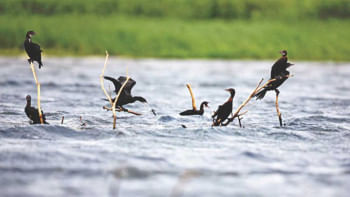
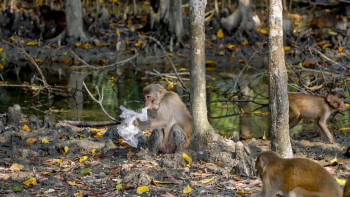


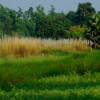

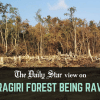


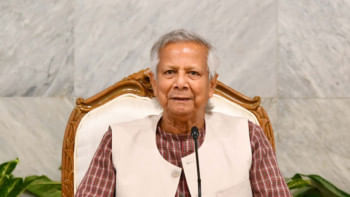
Comments